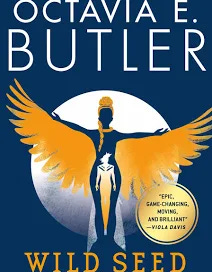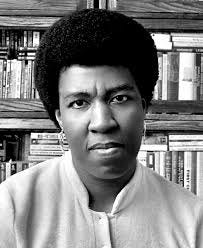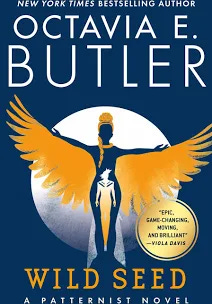Psychedelics, manipulation, sociopaths and Octavia Butler
"All that you touch you change. All that you change, changes you."
If you ask me, Octavia Butler created one of the creepiest characters in all of American literature: Doro, the demon in Wildseed. Doro, a spirit who knows no higher power than himself, attempts to breed a race of eccentric and powerful humans to do his bidding during the Trans-Atlantic slave trade. A manipulator with unchecked power, Doro’s subjects pledge their loyalty to him and venerate him, willfully blinding themselves to his violence. This character reminds me a great deal of the shaman I knew in the psychedelic renaissance, and many more creeps who acquire cultural, political or financial power.
I first read Wildseed after a friend sent me this episode of Throughline from NPR on Butler’s fiction. “I don’t write about good and evil with this enormous dichotomy,” Butler says in the podcast. “I write about people. I write about people doing the kinds of things people do. And, I mean, I think even the worst of us doesn’t just set out to be evil.”
In her fiction, Butler seemed to have dealt with some of the same questions I started asking after I met the shaman. In particular, I was curious about depictions of alternate states of consciousness and how someone who has access to such states might use this power to become manipulative and corrupt. Doro seemed like a prime example from literature of the phenomenon.
“He was like an ogbanje, an evil child spirit born to one woman again and again, only to die and give the mother pain,” Butler writes.
Doro exercises his power by killing people and “wearing their bodies like cloths.” Butler tells Doro’s backstory in the second half of Wildseed, of the trauma that caused him to separate from his body permanently. This radical experience of disassociation leads to Doro’s power AND his ability to prey on others. Butler writes, “Eventually, it also became clear that he was possessed. He heard voices. He fell to the ground writhing with fits. Several people, fearful that he might loose his devils on them, wanted to kill him, but somehow, his parents protected him.” Doro experiences a psychotic break—described by Butler as a transition—at age 13. “He had never known one of his witches to live when transition came that early,” Butler writes. “He had not lived himself. But unlike anyone he had managed to breed so far, he had not quite died either.” Instead of dying, Doro kills his mother, taking over her body because she is the person closest to him in the moment. Getting too close to Doro, especially when he’s angry, leads to sudden death in the novel. Drunk and numbed by power, Doro knows no other way of interacting with people aside from taking advantage of them.
In many ways, the psychedelic renaissance and the world of monetized spiritualism fosters similar relationship dynamics to the ones Butler depicted in Wildseed. The entire scene seems more and more like a play to take advantage of people who are trying to heal.
“He was seeking out his spiritual kin—people possessed or mad or just a little strange,” Butler writes of Doro. “They heard voices, saw visions, other things. He did none of those things any longer—not since his transition ended. But he fed on those who did. He learned to sense them effortlessly—like following an aroma of food. Then he learned to gather reserves for them, breed them, see that they were protected and cared for. They, in turn, learned to worship him.”
When clients complained about the shaman’s behavior or his alleged sacraments, facilitators told them to look within themselves for solutions, that the shaman or the sacraments were merely showing them what they had previously been unable to see and giving them what they needed in the moment. This extremely common psychedelic trip advice did double duty as a gaslighting script. The shaman always got a free pass. If he was hitting on a client it was because it was good for her, it was because she needed it, if he made promises he couldn’t keep it was because he was acting in accordance with spirit. Because of his identity, he became infinitely excusable. It was merely part of his nature to do what he did, many women around him said. Even he found the cult-like adoration of him sickening, but that didn’t mean he didn’t take advantage of it.
When someone gets used to this type of veneration from others, I think taking advantage becomes a habit, like Butler depicts Doro’s killing as a habit, something he sometimes tries to resist but ultimately must do because it has become part of his traumatized nature. And so his people excuse it.
Butler writes, “These strange ones, the witches, were good kills. They offered him the most satisfying durable food and shelter. He still preyed on them. Soon he would take one from Wheatley. The people of Wheatley expected it, accepted it, treated it as a kind of religious sacrifice. All his towns and villages fed him willingly now.”
Don’t become food for someone like him.





